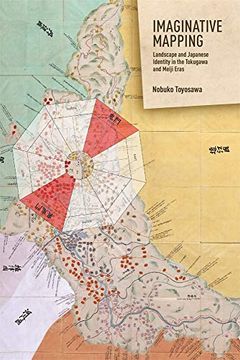Share
Imaginative Mapping: Landscape and Japanese Identity in the Tokugawa and Meiji Eras (Harvard East Asian Monographs) (in English)
Nobuko Toyosawa (Author)
·
Harvard University Asia Center
· Hardcover
Imaginative Mapping: Landscape and Japanese Identity in the Tokugawa and Meiji Eras (Harvard East Asian Monographs) (in English) - Nobuko Toyosawa
$ 42.00
$ 60.00
You save: $ 18.00
Choose the list to add your product or create one New List
✓ Product added successfully to the Wishlist.
Go to My WishlistsIt will be shipped from our warehouse between
Wednesday, May 15 and
Friday, May 17.
You will receive it anywhere in United States between 1 and 3 business days after shipment.
Synopsis "Imaginative Mapping: Landscape and Japanese Identity in the Tokugawa and Meiji Eras (Harvard East Asian Monographs) (in English)"
Landscape has always played a vital role in shaping Japan’s cultural identity. Imaginative Mapping analyzes how intellectuals of the Tokugawa and Meiji eras used specific features and aspects of the landscape to represent their idea of Japan and produce a narrative of Japan as a cultural community. These scholars saw landscapes as repositories of local history and identity, stressing Japan’s differences from the models of China and the West.By detailing the continuities and ruptures between a sense of shared cultural community that emerged in the seventeenth century and the modern nation state of the late nineteenth century, this study sheds new light on the significance of early modernity, one defined not by temporal order but rather by spatial diffusion of the concept of Japan. More precisely, Nobuko Toyosawa argues that the circulation of guidebooks and other spatial narratives not only promoted further movement but also contributed to the formation of subjectivity by allowing readers to imagine the broader conceptual space of Japan. The recurring claims to the landscape are evidence that it was the medium for the construction of Japan as a unified cultural body.
- 0% (0)
- 0% (0)
- 0% (0)
- 0% (0)
- 0% (0)
Answer:
All books in our catalog are Original.
Answer:
The book is written in English.
Answer:
The binding of this edition is Hardcover.
✓ Producto agregado correctamente al carro, Ir a Pagar.

